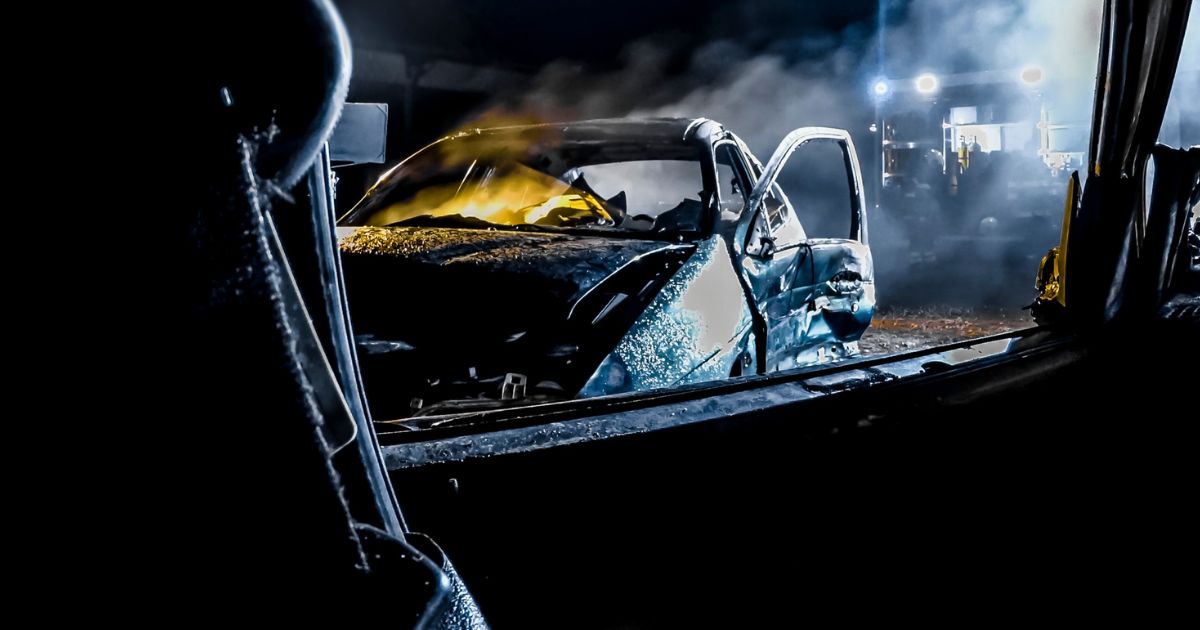According to statistics from the National Highway Traffic Safety Administration (NHTSA), more car accidents occur at night. NHTSA data reveals that about 50 percent of fatal crashes happen during nighttime hours despite there being significantly fewer drivers on the road. This alarming statistic underscores the importance of being extra cautious when driving after dark.
Why Do More Car Accidents Happen at Night?
Several factors contribute to the higher rate of car accidents at night. One of the primary reasons for the increase in nighttime crashes is reduced visibility. Darkness can make it harder for drivers to see pedestrians, other vehicles, and potential hazards on the road. Even with headlights and streetlights, there are still areas of limited visibility, like poorly lit roads or rural areas.
Fatigue can also make driving at night more challenging. Many people experience drowsiness during night hours, impairing their reaction time and decision-making abilities. Fatigue-related accidents are more likely to occur at night, especially during the early morning hours when the body’s natural circadian rhythm encourages sleep.
Unfortunately, alcohol-related accidents are also more prevalent at night. Many crashes involving alcohol occur during nighttime hours when people are more likely to be out socializing or returning home from bars and parties. Alcohol impairs judgment, coordination, and reaction time, significantly increasing the risk of accidents.
Are Rural Roads More Dangerous Than Urban Roads at Night?
Yes, rural roads pose unique challenges for nighttime driving. Poor lighting, winding roads, and wildlife crossings increase the risk of accidents. With fewer streetlights and reflective markings, visibility is often limited, making it harder to anticipate hazards.
Additionally, rural areas may lack cell service, delaying emergency response times in the event of an accident. Urban roads, while more congested, typically have better lighting and infrastructure, reducing the likelihood of accidents. Vigilance and caution are critical to minimize the heightened risks when navigating rural roads after dark.
How Can Drivers Stay Safe at Night?
Despite the increased risks, there are steps drivers can take to stay safe when driving at night:
- Ensure headlights are in good working condition and properly aligned.
- Reduce speed and increase the following distance to allow for unexpected obstacles.
- Avoid distractions like using smartphones or adjusting the radio.
- Take regular breaks to combat fatigue, particularly during long drives.
- Never drive under the influence of alcohol or drugs.
What Should I Do if I am Involved in a Nighttime Car Accident?
If you find yourself involved in a car accident at night, check for injuries and call emergency services if necessary. Then, take the following steps:
- Move vehicles to a safe location if possible to avoid further accidents.
- Exchange information with the other parties involved, including names, contact information, and insurance details.
- Document the scene by taking photos of the vehicles, road conditions, and relevant signage or landmarks.
- Notify your insurance company but only provide factual information without offering opinions.
- Seek medical attention for any injuries, even if they seem minor.
- Contact an experienced car accident lawyer to help manage the legal process and protect your rights.
- While driving at night presents unique challenges, being aware of the risks and taking proactive measures can significantly reduce the likelihood of accidents.
Contact a Philadelphia Car Accident Lawyer at McCann Dillon Jaffe & Lamb, LLC for a Free Consultation
If you were involved in a nighttime car accident and need legal assistance, contact a skilled Philadelphia car accident lawyer at McCann Dillon Jaffe & Lamb, LLC. Our team is dedicated to helping accident survivors seek the compensation they deserve. Call 215-569-8488 or submit our online form today. Located in Philadelphia and Abington, Pennsylvania, as well as Wilmington, Delaware, we serve clients in the surrounding areas.


